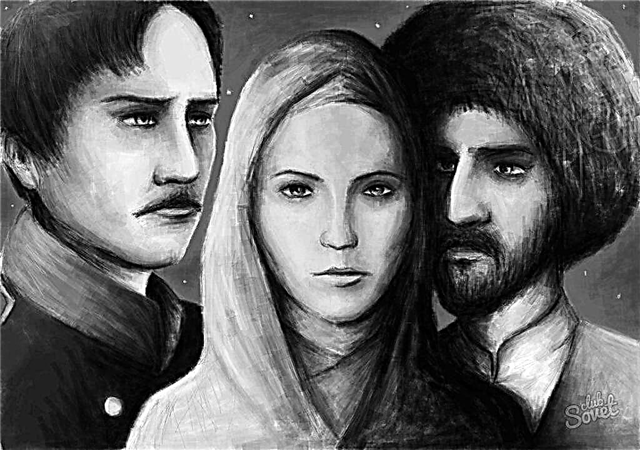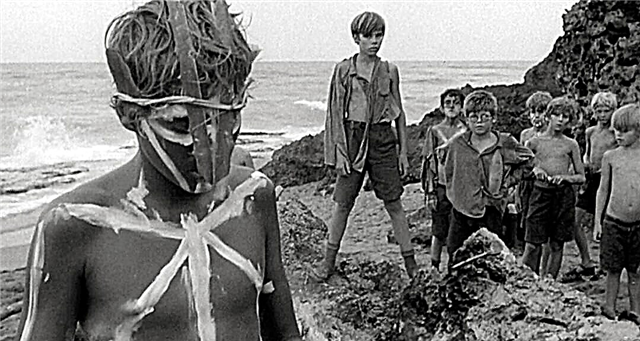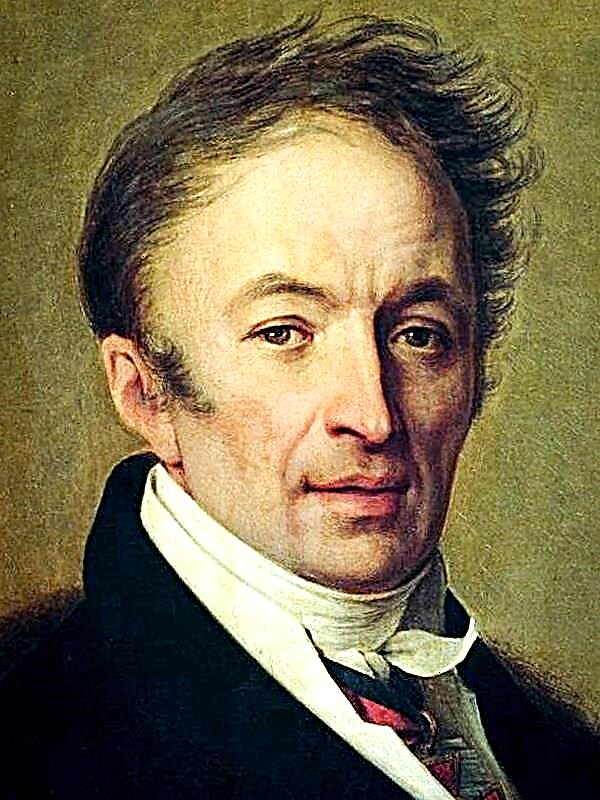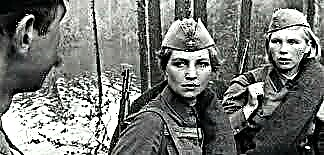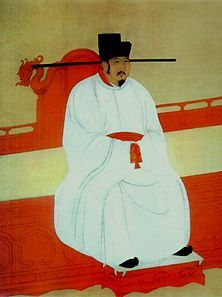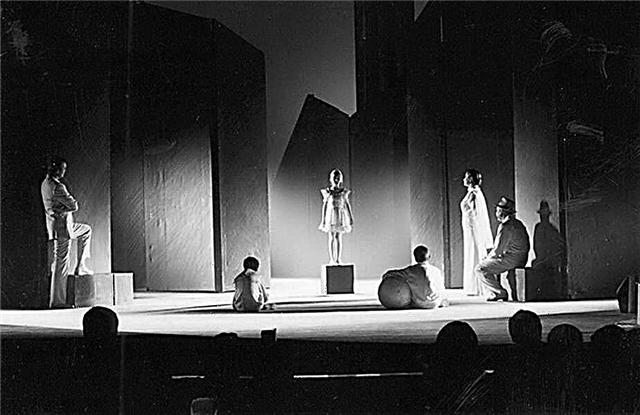This is an unusual poem - a continuation poem. It begins almost at once, picking up someone else's story. Its beginning was written by the poet Matteo Boyardo - no less than sixty-nine songs under the title "Roland in Love". Ariosto added forty-seven more to them, and in the end he thought about continuing on. There are no heroes in it, everyone has their own adventures, plot threads are woven into a real web, and Ariosto with particular pleasure interrupts each story at the most intense moment to say: now let's see what makes such and such ...
The protagonist of the poem, Roland, has been familiar to the European reader for four hundred or five hundred years. During this time, legends about him have changed a lot.
Firstly, the background has become different. In the “Song of Roland,” the event was a small war in the Pyrenees between Karl the Great and his Spanish neighbor - at Boyardo and Ariosto this is the all-around war between the Christian and Muslim worlds, where the emperor of Africa Agramant goes to Karl the Great, and with him kings and Spanish, and Tatar, and Circassian, and uncountable others, and in their millionth army there are two heroes whom the world has not seen: the enormous and wild Rodomont and the noble chivalrous Ruggier, which will still be discussed. By the time the Ariosto poem began, the Basurmans were conquering, and their hordes were already under Paris itself.
Secondly, the hero became different. In The Song of Roland, he is a knight like a knight, only the most powerful, honest and valiant. On Boyardo and Ariosto, in addition to this, on the one hand, he is a giant of unprecedented power, capable of tearing the bull with his bare hands in half, and on the other hand, a passionate lover who is capable of literally losing his reason in love - that’s why the poem is called “Frantic Roland ", The subject of his love is Angelica, a princess from Kataya (China), beautiful and frivolous, who turned her head to all knighthood in the world; at Boyardo, war broke out over her throughout Asia, at Ariosto she had just fled from the captivity of Charlemagne, and Roland was so desperate that he threw the emperor and friends in besieged Paris and went around the world to look for Angelica.
Thirdly, the hero’s companions became different. The main ones are his two cousins: the daring Astolf, the kind and frivolous adventurer, and the noble Rinald, Karl’s faithful paladin, the embodiment of all knightly virtues. Rinald is also in love and also with Angelica, but his love is unfortunate. There are two magical sources in the Ardennes forest in northern France - the key of Love and the key
Lovelessness; whoever drinks from the first, feels love, who from the second - disgust. Both Rinald and Angelica drank from one and the other, but not in the wrong way: first Angelica pursued Rinald with her love, and he ran away from her, then Rinald began to chase after Angelica, and she escaped from him. But he serves Charlemagne faithfully, and Charles from Paris sends him for help to neighboring England.
This Rinald has a sister Bradamanta - also a beauty, also a warrior, and such that when she is in armor, no one will think that this is a woman, not a man. Of course, she is in love with her, and this love in the poem is the main one. She is in love with the adversary, the very Ruggier, who is the best of the Saracen knights. Their marriage is predetermined by fate, because from the descendants of Ruggier and Bradamanta will go a noble family of princes Este, who will rule in Ferrara, in the homeland of Ariosto, and to whom he will devote his poem. Ruggier and Bradmantha met once in battle, chopped for a long time, marveling at each other's strength and courage, and when they got tired, stopped and took off their helmets, they fell in love at first sight. But there are many obstacles to joining them.
Ruggier - the son of a secret marriage of a Christian knight with a Saracen princess. He is raised in Africa by the wizard and warlock Atlas. Atlas knows that his pet will be baptized, give birth to glorious descendants, but then die, and therefore tries to keep his pet away from Christians in no way. He has a castle in the mountains full of ghosts: when a knight arrives at the castle, Atlas shows him the ghost of his beloved, he throws himself at the gate to meet her and for a long time remains in captivity, searching in vain for his lady in empty rooms and passages. But Bradamanta has a magic ring, and these spells do not affect her. Then Atlas puts Ruggier on his winged horse - the hippogryph, and he carries him to the other side of the world, to another sorceress-warlock - Alzina. She meets him in the guise of a young beauty, and Ruggier falls into the temptation: for many months he lives on her miracle island in luxury and bliss, enjoying her love, and only the intervention of a wise fairy who cares for Este's future race returns him to the path of virtue. The spell breaks, the beauty Altsina appears in the true image of vice, vile and ugly, and the repentant Ruggier on the same hippogriff flies back to the west. In vain, here again the loving Atlas lies in wait for him and lays in his ghostly castle. And the captured Ruggierre rushing about in his halls in search of Bradamanta, and next to the captive Bradamantha rushing about in the same halls in search of Ruggiero, but they do not see each other.
While Bradamanta and Atlas are fighting for the fate of Ruggier; while Rinald swims to and from England for help, and on the way rescues Lady Ginevra, who is falsely accused of dishonor; while Roland scours in search of Angelica, and on the way rescues Lady Isabella, captured by robbers, and Lady Olympia, abandoned by a treacherous lover on an uninhabited island, and then crucified on a rock as a sacrifice to a sea monster, meanwhile King Agramant surrounds Paris with his hordes and prepares for an attack, and the pious emperor Karl calls for help to the Lord. And the Lord orders the archangel Michael: “Fly down, find Silence and find Reprisal: let Silence give Rinald and the British a sudden look from the rear of the Saracen and let the Reprise attack the Saracen camp and sow discord and confusion, and the enemies of the right faith will become weak!” The archistratigus flies, searches, but does not find them there, where he looked for: Conflict with Sloth, Greed and Envy - among monks in monasteries, and Silence - between robbers, traitors and secret murderers. And then an attack struck, the screaming around all the walls was bubbling, the flame was burning, it had already burst into the city of Rodomont and one was crushing everyone, cutting from gate to gate, blood was pouring, arms, shoulders and heads were flying into the air. But Silence leads Rinald to Paris with help - and the attack is repelled, and only the night saves the Saracen from defeat. But a feud, Rodomont just made his way from the city to his own, whispers a rumor to him that his kind lady Doralis cheated on him with the second strongest Saracen hero, Mandricard, and Rodomont instantly throws his own and rushes off to look for the offender, cursing the feminine, vile, treacherous and treacherous.
There was a young warrior named Medor in the camp of Saracen. His king fell in battle; and when night fell on the battlefield, Medor came out with a comrade to find his body under the moon among the corpses and bury him with honor. They were noticed, rushed in pursuit, Medor was wounded, his comrade was killed, and Medora would have been bled to death in the thicket of the forest had not been an unexpected savior. This is the one with which the war began - Angelica, secret paths making her way to his distant Katai. A miracle happened: conceited, frivolous, abhorring kings and best knights, she felt sorry for Medor, fell in love with him, took him to a rural hut, and until his wound was healed, they lived there, loving each other, like a shepherd and a shepherdess. And Medor, not believing his happiness, cut out with a knife on the bark of trees their names and words of gratitude to heaven for their love. When Medor is strong, they continue their journey to Katai, disappearing beyond the horizon of the poem - and the inscriptions carved on the trees remain. They became fatal: we are in the middle of the poem - Roland's frenzy begins.
Roland, in search of Angelica having traveled half of Europe, falls into this very grove, reads these very letters in the trees and sees that Angelika fell in love with another. At first he does not believe his eyes, then his thoughts, then goes numb, then weeps, then grabs his sword, cuts down trees with letters, cuts rocks on the sides - “and the very frenzy that has not been seen, and it’s worse to see”. He throws away the weapon, tears off the shell, tears the dress on himself; naked, shaggy, he runs through the woods, tearing out oaks with his bare hands, satisfying hunger with raw bears, tearing the oncoming legs in half, crushing whole regiments alone. So - in France, so - in Spain, so - through the strait, so - in Africa; and a terrible rumor about his fate reaches even the Charles Court. And it’s not easy for Karl, even if Rashpri and sow discord in the Saracen’s camp, even though Rodomont quarreled with Mandricard, and with the other, and the third hero, but the Basurman’s army is still near Paris, and the unchristians have new invincible warriors. Firstly, it is Rugiere who has arrived in time and no one knows where - although he loves Bradamanta, his lord is an African Agramant, and he must serve his vassal service. Secondly, this is the heroess Marfiz, a thunderstorm of the whole East, never taking off her shell and taking an oath to beat the three strongest kings in the world. Without Roland, Christians cannot deal with them; how to find him, how to return his reason?
This is where the fun adventure seeker Astolf, who does not care. He is lucky: he has a magical spear, knocking everyone off the saddle, he has a magical horn that will stampede anyone he meets; he even has a thick book with an alphabetical index on how to deal with what forces and spells. Once he was brought to the ends of the world by the seducer Alzina, and then he was rescued by Ruggier. From there, he galloped home across Asia. On the way, he defeated the miracle giant, whom no matter how you cut it, it will grow together again: Astolf cut off his head and galloped away, plucking hair after hair in it, and the headless body fled, waving its fists, after it; when he plucked the hair in which there was a giant life, the body collapsed and the villain died. On the way, he became friends with dashing Marphisos; I visited the coast of the Amazons, where each newcomer must beat ten at a tournament in one day and one night, and satisfy ten in bed; rescued from their captivity glorious Christian knights. On the way, he even got to Atlantes Castle, but even that one did not stand against his wonderful horn: the walls were scattered, Atlas died, the captives escaped, and Ruggier and Bradmantha (remember?) Finally saw each other, threw themselves into an embrace, swore allegiance and parted : She goes to the castle of her brother Rinald, and he goes to the Saracen camp, to serve Agramant, and then be baptized and marry the dear. But Hippogryph, the winged Atlantean horse, Astolf took himself and flew over the world, looking down.
This nonchalant eccentric happened to save Roland, and for this, first go to hell and paradise. From under the clouds he sees the Ethiopian kingdom, and in him the king, who is starved to grab food, predatory harpies - exactly like in the ancient myth of the Argonauts. With his magic horn, he drives the harpies away, drives them into dark hell, and on the occasion he listens to the story of a beautiful woman who was merciless to her fans and now is tormented in hell. The grateful Ethiopian king shows Astolf the high mountain above his kingdom: there is an earthly paradise, and the apostle John sits in it and, according to the word of God, awaits the second coming. Astolf takes off there, the apostle joyfully welcomes him, tells him about future destinies, and about the princes of Este, and about the poets who will glorify them, and about how others offend the poets with their avarice - “and it makes no difference to me, I’m not alone writer, wrote the gospel and revelation. " As for Roland’s reason, he is on the Moon: there, on Earth, there are mountains and valleys, and in one of the valleys - everything that people have lost in the world, “whether from distress, from old age, from stupidity” . There is the vain glory of the monarchs, there are the fruitless prayers of lovers, the flattery of the flatterers, the brief mercy of the princes, the beauty of beauties and the mind of the prisoners. The mind is a light thing, like steam, and therefore it is closed in the vessels, and it is written on them in which whose. There they find a vessel with the inscription “the mind of Roland”, and another, smaller, “the mind of Astolph”; Astolf was surprised, breathed in his mind and felt that he had become smart, but he was not very. And, glorifying the beneficent apostle, not forgetting to take Roland's mind with him, the knight, riding on a hippogryph, rushes back to Earth.
But on Earth, much has changed.
Firstly, the knights liberated by Astolf on his eastern routes, already reached Paris, joined Rinald, with their help he hit the Saracens (thunder to the sky, blood flowing, heads from shoulders, arms and legs chopped off, in bulk ), repelled them from Paris, and the victory again began to lean on the Christian side. True, Rinald beats half-heartedly, because his soul is controlled by the former unrequited passion according to Angelica. He is already starting to look for her - but then an allegory begins. In the Ardennes forest, a monster Jealousy pounced on him: a thousand eyes, a thousand ears, snake mouth, body rings. And to his aid a knight stands Contempt: a light helmet, a fiery club, and behind his back - the key of Lovelessness, healing from unreasonable passions. Rinald drinks, forgets the love of madness and is once again ready for a righteous battle.
Secondly, Bradamanta, having heard that her Ruggier is fighting among the Saracens next to a certain warrior named Marfiza, lights up with jealousy and jumps to fight with him and her. In the dark forest, at the unknown grave, Bradamant and Marfiz start to be cut, one another is more courageous, and Ruggier in vain separates them. And then suddenly a voice is heard from the grave - the voice of the dead wizard of Atlanta: “Get out of jealousy! Ruggier and Marfiz, you are brother and sister, your father is a Christian knight; while I was alive, I kept you from the Christian faith, but now, truly, the end of my labors. ” Everything is becoming clear, Rugger’s sister and Rugger’s girlfriend are embracing each other, Marfiza is baptized and calls for Ruggier, but he hesitates - he still has the last debt to Tsar Argamant. He, desperate to win the battle, wants to decide the outcome of the war by a duel: the strongest against the strongest, Ruggier against Rinald. The place has been cleared, oaths have been taken, the battle begins, the Bradamantha’s heart is broken between his brother and lover, but here, as once in the Iliad and Aeneid, someone’s blow breaks the ceasefire, the general massacre begins, the Christians overcome, and Agramant with few of his minions escapes on a ship to sail to his overseas capital - Bizerte, near Tunisia. He does not know that under Bizertoy his most terrible enemy awaits.
Astolf, having flown off a mountain of paradise, gathers an army and hurries to land and land to strike from the rear at Agramantova Bizerte; there are other paladins with him, who escaped from the Agramantian captivity, and mad Roland, wild, naked, towards them, you will not come, you will not grab. They piled up five, threw a lasso, stretched, tied, demolished to the sea, washed, and Astolf brought a vessel with Roland's mind to his nose. As soon as he breathed in, his eyes and speech became clear, and he was already the former Roland, and already free from evil love. Charles ships are sailing, Christians are attacking Bizerte, the city is taken - mountains of corpses and flame to heaven. Agramant with two friends escapes by sea, Roland with two friends pursues them; the last triple fight takes place on a small Mediterranean island, Agramant dies, Roland is the winner, the war is over.
But the poem is not over yet. Ruggier received holy baptism, he comes to the Charles Court, he asks for the hands of Bradamanta. But Bradamantha's old father is against it: Ruggier has a glorious name, but no stake or yard, and he is better to pass Bradamant for Prince Leon, the heir to the Greek Empire. In mortal grief Ruggier rides away - to face off with an opponent.On the Danube, Prince Leon fights with the Bulgars; Ruggier comes to the aid of the Bulgars, performs miracles of feats of arms, Leon himself admires an unknown hero on the battlefield. The Greeks trick Ruggier into captivity, give him to the emperor, throw him into an underground dungeon - the noble Leon saves him from certain death, gives honor to him and secretly keeps it to himself. “I owe you my life,” says the shocked Ruggier, “and I will give it for you at any moment.”
These are not empty words. Bradamanta announces that she will marry only the one who will master her in a duel. Leon is sad: he will not stand against Bradamanta. And then he turns to Ruggier: "Come with me, go out into the field in my armor, defeat Bradamant for me." And Ruggierre does not betray himself, he says: "Yes." In a large field, in the face of Karl and all the paladins, a mating battle lasts a long day: the Bradamant is eager to hit the hated groom, showers him with a thousand blows. Ruggierre aptly repulsed every single one, but did not inflict a single one, so as not to accidentally injure his beloved. The audience is amazed, Carl announces the guest the winner, Leon in a secret tent hugs Ruggier. “I owe you happiness,” he says, “and I will give you everything you want at any moment.”
And life is not sweet to Ruggier: he gives up his horse and armor, and he himself goes into the cup of the forest to die of grief. He would have died, hadn’t intervened, the kind fairy who cares for Este’s future home. Leon finds Ruggier, Ruggier opens to Leon, nobility competes with nobility, Leon renounces Bradamanta, truth and love triumph, Karl and his knights applaud. Ambassadors come from the Bulgars: they ask their savior for their kingdom; now even Bradamant’s father will not say that Ruggier has neither a stake nor a yard. A wedding, a holiday, feasts, tournaments are being handled, the wedding tent is embroidered with paintings for the glory of future Este, but this is not an end.
The last day is the one we almost forgot about: Rodomont. According to the vow, he did not take arms into his hands year and day, and now he jumped up to challenge his former comrade-in-arms to Ruggier: "You are a traitor to your king, you are a Christian, you are not worthy to be called a knight." The last fight begins. Equestrian battle - shafts in chips, chips to the clouds. On foot battle - blood through armor, swords to smithereens, fighters squeezed with iron hands, both froze, and now Rodomont falls to the ground, and the dagger of Ruggier is in his visor. And, as in "Aeneid", to the hellish shores "his soul flies with a blasphemy, so once proud and arrogant."

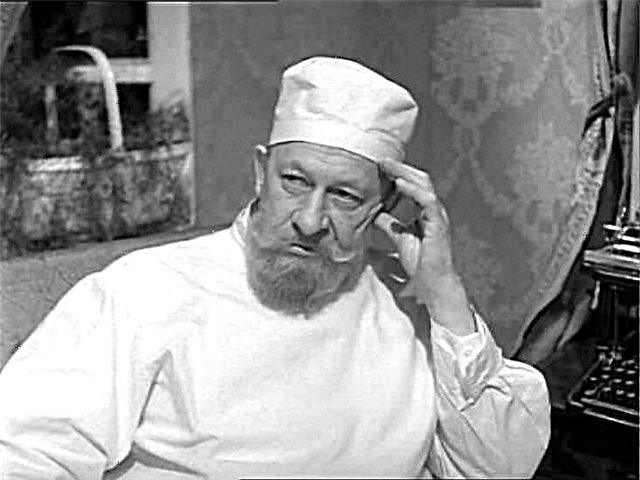
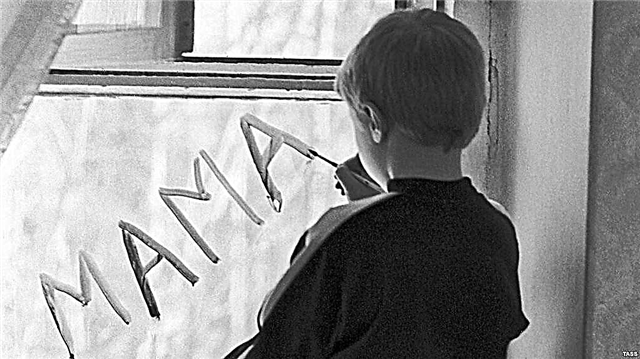
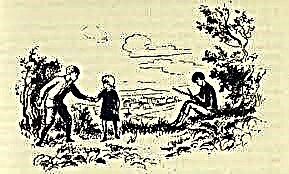
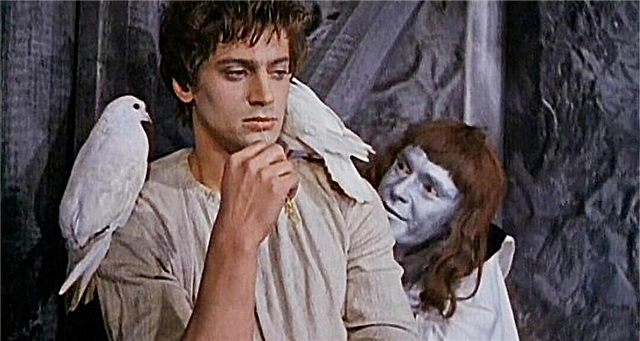 City of masters
City of masters